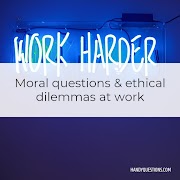5 Questions You Can Ask to Recognize Fake News
 |
To prevent you from believing a fake article, you better ask the right questions. As an important step to demonstrate critical thinking.
But often you will not have time to ask a lot of questions. Asking 20 questions before reading an article goes too far.
That is why we share in this article only five quesions: the five best questions you can ask when reading a news article.
Also relevant: Still relevant today: the two critical thinking questions Socrates asked
Five critical questions to recognize fake news
1. Who created the message?
All knowledge comes from someone. Someone who has certain ideas, political views and interests. Consciously (manipulation) or unconsciously, these ideas can influence the content of an article.For that reason, try to find out who wrote the article.
2. Why is this article written?
Determine for yourself what the purpose of the message is. Is it to inform, to convince, to explain, to entertain (or a combination), ...? What is the underlying objective: more power, more knowledge, more profit / money?3. How did the message spread?
Try to determine the original source of the message. Where else has the message turned up? What adjustments have been made? Why is the message spread through certain media and not through others?4. Which techniques have been used to attract your attention?
Which methods have been used to distract you from the content? Or to keep you on a site for as long as possible? Think of clickbait, playing with your feelings or emotions, the use of certain images. It could be a sign that the news is wrong. Or at least exaggerated.5. What do you miss: which ideals, interests, opinions, points of view, counter-arguments or facts are missing?
It is always valuable to investigate the other side of a message. The
right to be heard is a valuable journalistic principle, but by no means
all journalists adhere to it (time is precious). Distributors of fake
news are of course not concerned at all with nuanced reporting.
Enjoy asking the right questions!





